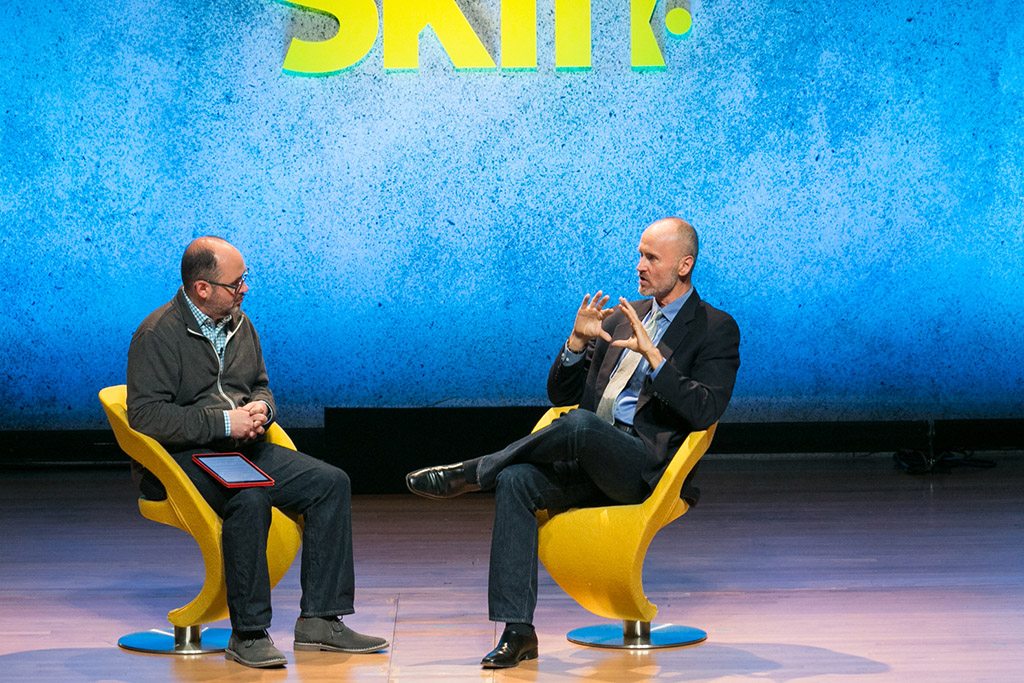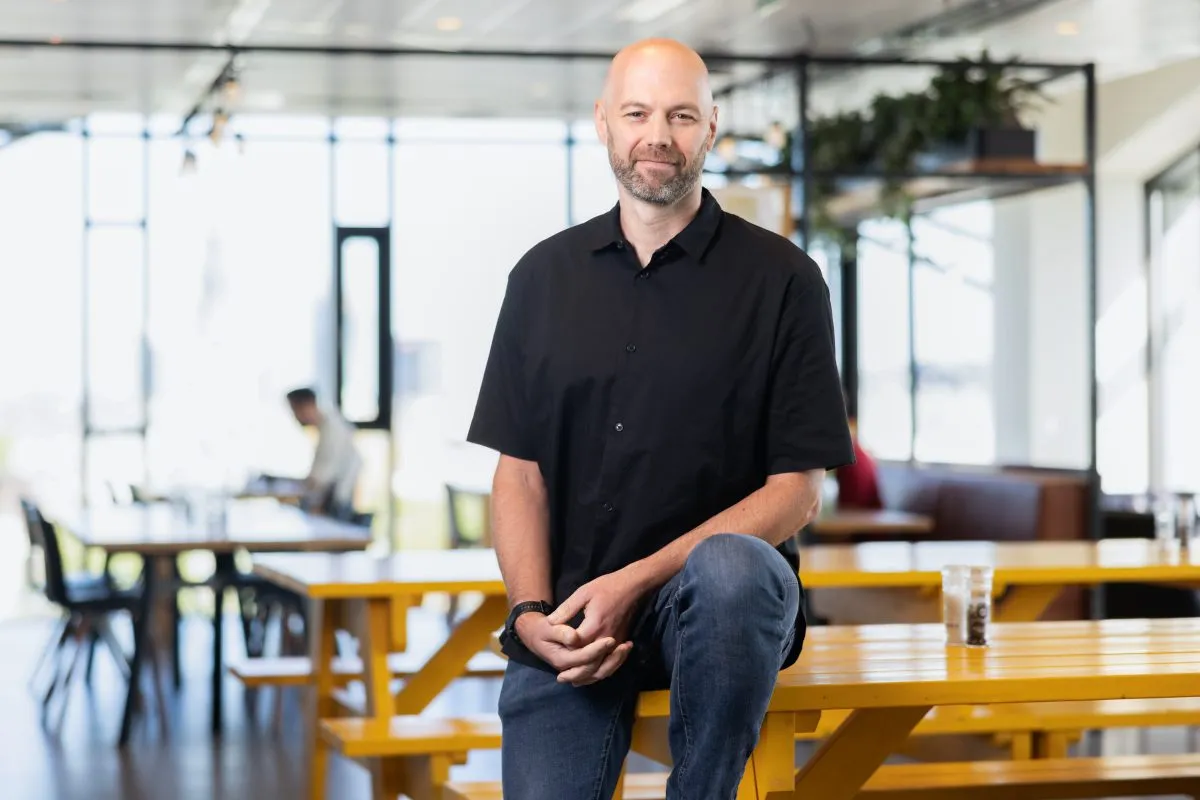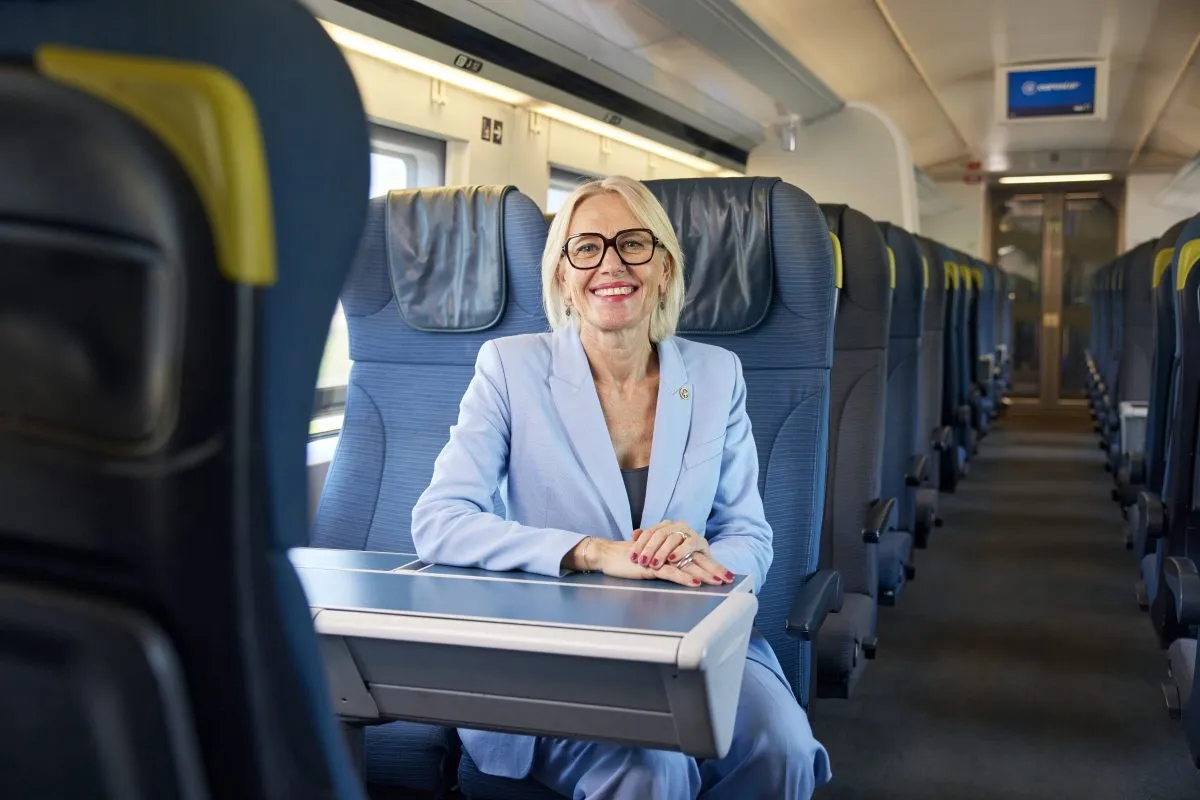Airbnb's Chip Conley to Leave Global Head of Hospitality and Strategy Role

Skift Take
Chip Conley, who has held the role of Global Head of Hospitality and Strategy at Airbnb since April 2013, is cutting back his involvement with the short-term rental giant, Skift has learned.
Conley's diminished role was confirmed by Airbnb and by Conley himself.
"When I was asked almost four years ago by the [Airbnb] founders to join them to help them demonstrate hospitality with Airbnb, it was supposed to be a part-time role," Conley told Skift. "It was very clear, very quickly, there wasn't a part-time role at Airbnb and it was very immersive. At this point, I feel really good about the accomplishments we've made there. There's a chapter here that's ending, but I'm still just as passionate and committed to Airbnb. I'm not leaving entirely, but cutting back to a strategic advisor role where I'll be a consultant to the company with much more limited hours."
In a press statement from Airbnb, the company said: "In his four years at Airbnb, Chip has always taken on new opportunities and challenges, and we're excited for him to start his next chapter at Airbnb as our new Strategic Advisor for Hospitality and Leadership. Through his work starting the hospitality team, creating the business travel program, and launching the Airbnb Open he has raised the standards of our platform and been a constant champion for our community. He has been an integral part in making Airbnb the company that it is today, and we're grateful that as he scales back his day-to-day role, he'll continue to be part of Airbnb's future."
In his new role, Conley will continue to be focused on hospitality, as well as the newly launched Airbnb Trips, and other verticals, he said. "There may be other verticals we're getting into where I can be a thought leader in the company and give strategic advice." One such vertical, as reported previously, may be Airbnb Lux, a new category focused on luxury accommodations and experiences.
Conley also said he has "no interest in being an advisor to other companies," and that the next things on his agenda involve "getting more sleep" and "writing my next book." "I think just mostly relaxing a bit more, which is something I have spent very little of my life doing. We'll see if I can do that."
Airbnb did not disclose whom would be replacing Conley as Global Head of Hospitality and Strategy, or if there would be a replacement, but did say it would share more news in the future.
Rumors of Conley's departure, or change in roles at Airbnb, had emerged as early as last fall. During an interview with Conley at the Airbnb Open in Los Angeles on Nov. 17, Skift asked him what he had planned next, and whether or not he intended to leave Airbnb.
At the time, Conley told Skift, "I just need to get through the Airbnb Open. I have no comment right now. What I would say is, you should talk to the [Airbnb] communications team. There's nothing to talk about, there really isn't. I'm fully committed right now."
He added, however, "Let's just acknowledge that, when I first joined [Airbnb], and I've said this very publicly, it was a part-time gig for 15 hours a week. Brian [Chesky, Airbnb CEO] assured me about that."
"I have loved it and I continue to. Yet, I'm 56 years old. I'm here for the rest of my life as an actively involved person in this company. You can see, with the Airbnb Open, it's got my fingerprints. This living, breathing beast of a festival is going to get a lot bigger over time. I'm still active. There's nothing else to say beyond that. You can talk to these guys [pointing to an Airbnb public relations executive] about how you get more information over time, [but right now] there's nothing to announce."
Airbnb's Current Focus: From Hospitality to All of Travel
The Airbnb brand is strongest at its product and at hospitality, very much in large part because of Conley. The veteran hotelier, who started Joie de Vivre boutique hotels in 1987 at the age of 26, has become a mentor at the company, giving the startup the much needed hospitality knowledge it required to enhance the Airbnb guest experience, as well as navigating it through the inner workings of the travel industry.
During that same conversation with Conley at the Airbnb Open, he told Skift, "I think I joined the company at exactly that time that they were smart enough to know [the importance of] hospitality. They were a design company with a technology background. The three founders were the designer/technology people. The third leg of the stool is hospitality, which spoke to quality measures and quality aspirations. It became a quantity and quality company for a little while. Over time, on the home side, we have gotten more and more focused on quality."
He also said that when he first joined Airbnb in 2013, the company was fielding a number of opportunities to grow, but that they were mostly limited to spaces, and not really about travel.
Conley said, "Even back then there were people who were saying, 'Well, why don't you get into the conference space business? Or the office space business? You're in the space business. You just, through technology, help marry demand and supply.' From an objective, almost technician way, you could have said, 'Okay, yes, we should be in the space business.' I said, 'Oh no, we're in the travel business.' Ultimately, internally, there's this internal mantra [where we ask ourselves], 'Do we want to be the most loved brand in travel, or the super brand of travel?'"
Conley's Accomplishments at Airbnb
As Airbnb's Global Head of Hospitality and Strategy, Conley has become the company's main liaison with its host community of millions worldwide. Conley's inaugural tour of nearly two dozen cities worldwide, where he personally met with Airbnb hosts and guests, he said, helped him develop "street cred" with the community.
"There hadn't been sort of this old guy with the hospitality background who'd come and could even make some decent suggestions and tips about hospitality," he said. "That's when I realized this was a calling for me — not just a job. I loved the idea of helping to democratize travel."
He also spearheaded the launch of the Airbnb Open, the company's annual conference for hosts, in 2014. What started nearly three years ago in San Francisco with just a few hundred hosts has now become a massive event that brought together more than 7,000 hosts this year in Los Angeles.
It also probably helped that Conley has a background in organizing events, and serves on the board of the Burning Man Project. Conley also founded Fest 300, a curated list of the world's best 300 festivals.
Initially, when Conley first started working at Airbnb, his title only included "hospitality." The "strategy" part was added later, at the insistence of CEO Brian Chesky.
"When I joined [Airbnb] a little over three and a half years ago, we had many challenges that we were trying to grapple with," Conley explained. "It's part of the reason why, ultimately, they added "and Strategy" to my title from Head of Global Hospitality to Head of Global Hospitality and Strategy. Brian said, 'I want you to have that, too.'"
Conley said, "The first question I asked Brian, who was both my boss and whom I was mentoring, was: 'How do you have some level of standards that the hosts deliver a great experience for the guests?' If we do want to become a world-class hospitality platform, how do we depend on the reliability of our hosts?"
He said the biggest lesson he's learned in his role is that, as a seasoned hotelier, he's learned that the Airbnb host community "has as much or more an incentive to do a great job as a hospitality provider or as an employee of a hotel."
Conley added, "I'm very proud of the fact that Airbnb's host community has gotten better and better at sharing best practices with each other, learning from great online books about how to be great hosts, and learning from us at the Airbnb Open or through the Host Community Center. We are a very successful hospitality company now."
Understanding Hotels
Conley also served as Airbnb's guide as it navigated the often hostile and/or dismissive reception the company received from the established hotel industry.
Conley was the perfect person to do just that: an executive with more than 30 years of experience working in the hotel industry, but also someone adept enough and open enough to not only recognize, but embrace, the next big disruption. The hotel industry admired him. Airbnb looked up to him. And he skillfully managed to operate in both of those worlds.
When we asked Conley if his new, more limited role, would impact Airbnb's relationship with the hotel industry, he said, "There's a whole team way beyond Chip Conley who are on an hourly and daily basis serving the needs of our hosts and guests 24/7. There's no way I could do this all by myself. these folks are open 24 hours a day, just like a hotel, and they are providing amazing services. I probably provide a little bit of inspiration, but my inspiration doesn't go away. I'll still be there in a visionary way, and looking for new ways for Airbnb to be an even better hospitality company. I'll no longer be in a day to day role, but I don't think it'll make a big difference, and I don't think the hospitality industry will care that much."
In his role, he'd often attend travel industry conferences and talk about how home sharing could work alongside established players, whether the audience was filled with hoteliers, meeting planners, corporate travel managers, and the like.
During an interview in September at the Skift Global Forum he said he still firmly believes that hotels and home shares like Airbnb can work together. And just as timeshares and boutique hotels disrupted the hotel industry when they emerged, so too has Airbnb.
"These were all typically started by someone outside of the industry by a pioneer or series of pioneers," Conley said. "At first, the industry ignored it, ridiculed it, or sometimes fought it. Over time, when people realized there was an unmet need that disruption was addressing, all of a sudden, the big brands jumped on the bandwagon."
Signs of this are already clear. In 2016, AccorHotels, for example, purchased luxury Airbnb competitor onefinestay for $168 million. And with home sharing now becoming so mainstream and no longer "alternative," it's also facing a lot of problems that more mature businesses face. In Airbnb's case, those challenges, more often than not, have taken the form of tougher regulations and restrictions, and the company says is working hard to show cities that it's serious about working together with them.
Whereas hospitality was a crucial part of Airbnb's formative years, public policy and innovation in online travel will mark the company's future going forward.




